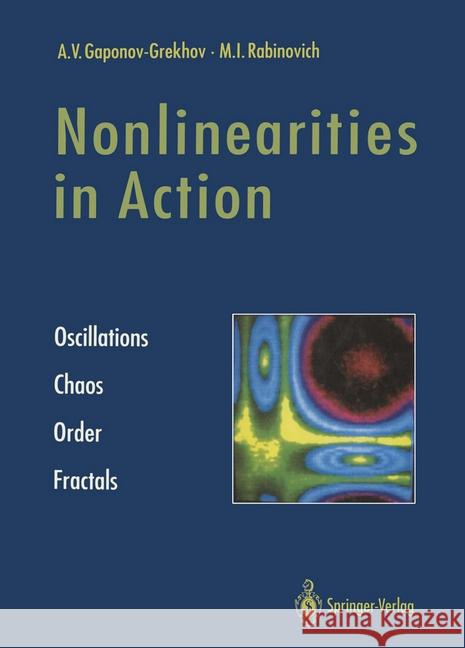Nonlinearities in Action: Oscillations Chaos Order Fractals » książka
Nonlinearities in Action: Oscillations Chaos Order Fractals
ISBN-13: 9783642752940 / Angielski / Miękka / 2011 / 191 str.
In the dynamics of mankind one can trace out a path of contemplation about the "world," leading from early speculations to today's natural sciences. The endeavour to understand how nature works has led to the construction, still in progress, of an abstract building of great com plexity. To the uninitiated it may look more like a scurrilous sculpture resting on many legs, among them such peculiar ones as probability, relativity, quantum mechanics .... At times problems with the stabil ity of the building or sculpture arise: known facts that won't fit and can no longer be ignored start to undermine the foundations. Then new footings are thought of, constructed and finally cast. In fact, the undermining and casting is often done in one step. This process has already been repeated many times and will un doubtedly repeat itself again and again. At present, one recognizable footing under construction goes by the name of "chaos theory." Physi cists seem to like the word chaos. When they came to recognize that the air is not just empty space but an obviously indescribable dance of myriads of molecules they called that "chaos." What else would fit? In the course of time the name was simplified to "gas." Thus the word chaos became free to serve for the next upsetting experience. That arose in the context of nonlinear dynamical systems, where peculiar motions were detected, ones seemingly beyond human comprehension."











